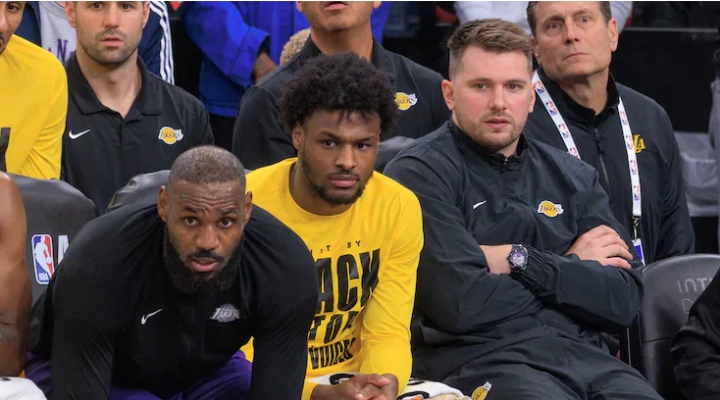Bronny James’ journey as a professional player is just beginning. There’s hope that the plan set in motion when he was drafted by the Lakers will come to fruition: to gradually build his confidence and develop into a valuable rotation piece—particularly on the defensive end.
Though his playing time during his rookie season under head coach J.J. Redick was limited, it’s expected to increase in his second year, thanks to the encouraging progress he showed down the stretch of the season, which is still ongoing with the Finals between the Thunder and Pacers.
In the 2024 Draft, LeBron James’ son was selected 55th overall—one of two picks the Lakers had (the other was Dalton Knecht, who was nearly traded to the Hornets). That’s how Bronny entered the NBA.
The context wasn’t ideal: he’d suffered a heart issue before his only college season at USC, during which he didn’t stand out statistically. That’s why skepticism has followed the Cleveland-born guard/forward from the start.
The Lakers’ lack of flexibility this summer means Rob Pelinka’s expected aggressive moves will offer little room to add significant rotation players. That could actually work in Bronny’s favor.
So far, he’s averaging 2.3 points in just 6.7 minutes per game. Many of those minutes—especially early in the 2024–25 season—came during “garbage time,” when games were already decided and less experienced players got court time. But that’s exactly where the growth has happened.
The plan seems to be on track. Now, Bronny needs to take the next step—earning meaningful minutes and proving whether he belongs in the first or second unit. That will be the ultimate test of whether the Lakers made the right call.
In an interview with Sean Deveney of Athlon Sports, a Western Conference executive, speaking anonymously, shared his thoughts on Bronny’s near future with Redick: “I know he gets a lot of heat because of who his father is, but we’ve watched a lot of film on Bronny, and the truth is he played much better in April than he did in October. He’s had a whole year where his development was basically out of his control. He can defend the perimeter, and he showed he can shoot the three.
If he proves that wasn’t a fluke, he’ll start getting 10 to 15 minutes a night because the team will trust him. And he will—they’ll be able to count on him next year.”

